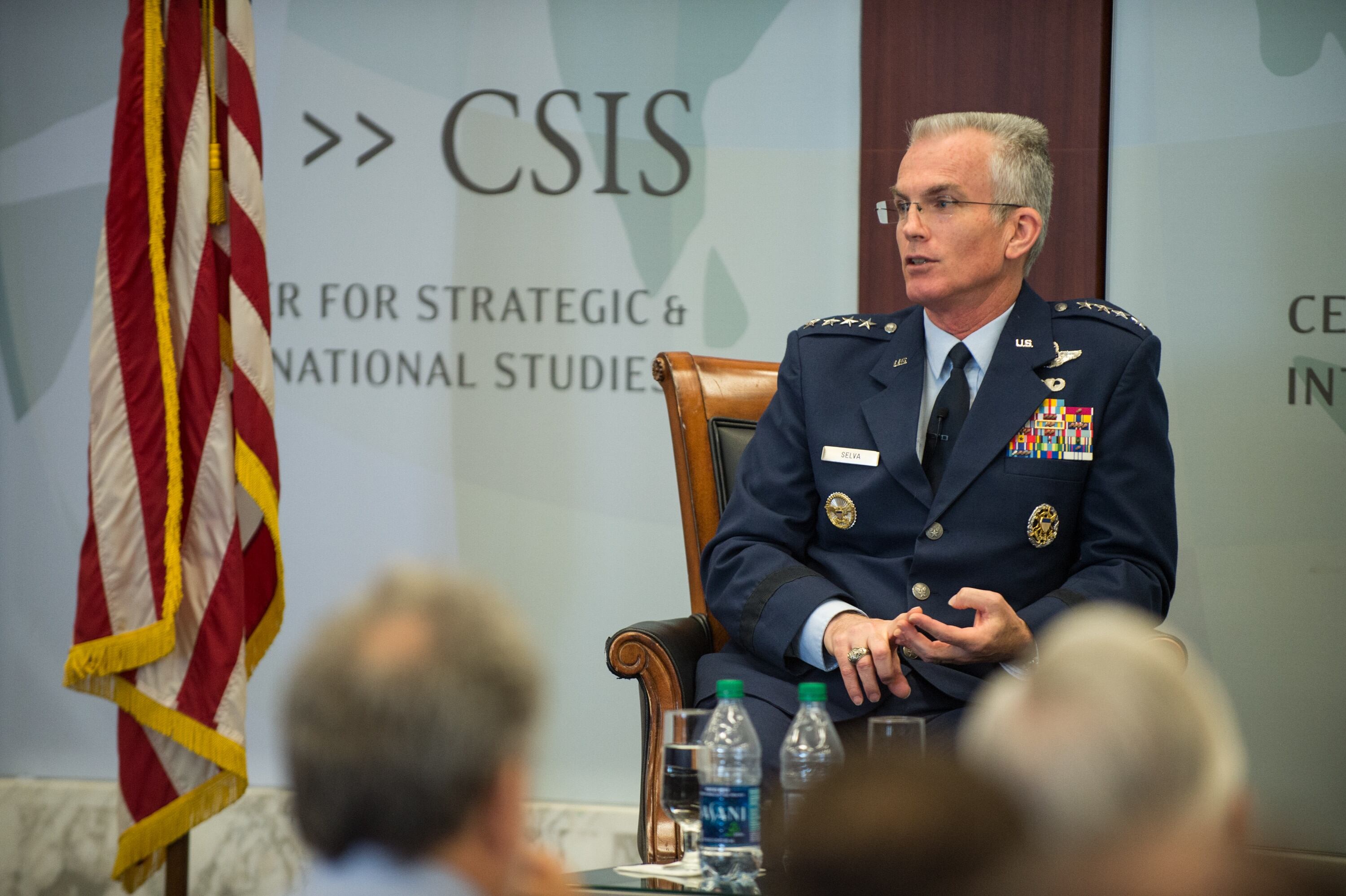WASHINGTON ― It’s no secret that former Deputy Secretary of Defense Bob Work is one of the biggest advocates for artificial intelligence inside the Beltway. Work was one of the Defense Department’s key architects of the Third Offset Strategy, which focused on machine learning, and led the one of department’s first forays with artificial intelligence in April 2017, establishing the drone footage analysis initiative Project Maven.
But how does Work, a former Marine Corps artillerymen, become Washington’s AI savant? By reading and watching a lot of science fiction.
At an Atlantic Council conference in 2016 Work said, “People have been thinking about [artificial intelligence] for quite some time and you can learn very interesting things [from] a lot of the stuff that you read in science fiction.”
In a new primer from the Center for New American Security’s technology and national security program released earlier this month, Work was at it again, discussing his favorite science fiction pieces.
Here are some of the cultural touchstones that Work has mentioned in his speeches and writings that have influenced his thinking on the subject.
Metropolis
This 1927 German silent-film is one of the first full-length science fiction films ever made. The movie tells the story of an inventor who creates a robot to fill the role of his deceased lover, but, as Work notes in the preface of the CNAS AI primer, “the robot gets other ideas and ultimately holds sway over an entire city.”
According to Work, Metropolis explores the possibility of human enslavement by intelligent machines, one of the main concerns regarding artificial intelligence. And while he is a proponent of AI capabilities, stories like Metropolis remind him of the dangers.
Speaking at CNAS on June 21, Work compared China’s forays into facial recognition technology to the robot in Metropolis. “The most scary thing about AI is the means that the government can use it to control and influence its population,” he said.
Iron Man and Terminator
Anyone who has followed Work’s thinking on this subject knows that he often describes DoD’s vision for artificial intelligence as more like Iron Man than Terminator.
Work has described the goal for DoD’s AI research programs as similar to JARVIS or FRIDAY, the two AI systems that power Tony Stark’s iconic suit in the Marvel films, essentially “a machine to assist a human where the human is still in control in all matters, in all matters, but the machine makes the human much more powerful and much more capable.”
Just don’t talk about the Terminator. The completely autonomous killing machine popularized by Arnold Schwarzenegger is something of a nemesis for Work, who instead envisions systems that involve man-machine teaming that enhance human decision-making and capabilities.
RELATED

The Matrix Trilogy
Another example of how AI may attempt to enslave humankind, the popular movie series explores the possibility that machines will conquer the world by imprisoning human’s minds in an artificial reality.
Perhaps most famous for making the protagonist decide if he prefers to believe in his safe and constructed reality or stay in Wonderland and learn how deep the rabbit hole goes (and dodging bullets in slow motion), the film challenges the human imagination to think about the lengths AI could go to ensure its dominance.
Work referenced the movie at an award ceremony held in his honor at the Pentagon in January 2017. Explaining what it was like to be tapped to be deputy secretary of defense, he said
Rise of the Robots: Technology and the Threat of a Jobless Future
This book, written by Martin Ford, highlights another key issue AI thought leaders are grappling with; how will AI impact the workplace and economic competitiveness?
Although AI will likely remove jobs from the workforce, Work wrote recently, “AI and machine learning will likely lead to a new industrial revolution, improving economic competitiveness and creating new sources of wealth.” AI thought leaders often stress the importance improving the education system, equipping young people with the skills they need to thrive in an AI-driven economy.
The Bolo series
A relatively unknown fictional series that takes place in a universe where tanks are equipped with psychotronic circuitry that grants machines self-awareness, strategic planning and decision-making and conscience, is one of Work’s “favorite book series.”
The books explore themes of artificial intelligence and autonomous weapons, as well as the possible safeguards that can be used to prevent such systems from hurting their human creators.
Daniel Cebul is an editorial fellow and general assignments writer for Defense News, C4ISRNET, Fifth Domain and Federal Times.








